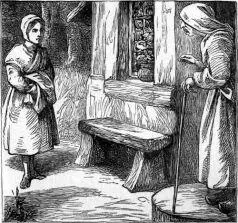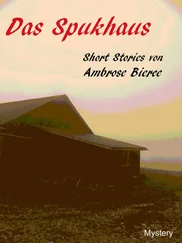Ambrose Bierce - Cobwebs from an Empty Skull
Здесь есть возможность читать онлайн «Ambrose Bierce - Cobwebs from an Empty Skull» весь текст электронной книги совершенно бесплатно (целиком полную версию без сокращений). В некоторых случаях можно слушать аудио, скачать через торрент в формате fb2 и присутствует краткое содержание. Жанр: Юмористическая проза, Классическая проза, на английском языке. Описание произведения, (предисловие) а так же отзывы посетителей доступны на портале библиотеки ЛибКат.
- Название:Cobwebs from an Empty Skull
- Автор:
- Жанр:
- Год:неизвестен
- ISBN:нет данных
- Рейтинг книги:4 / 5. Голосов: 1
-
Избранное:Добавить в избранное
- Отзывы:
-
Ваша оценка:
- 80
- 1
- 2
- 3
- 4
- 5
Cobwebs from an Empty Skull: краткое содержание, описание и аннотация
Предлагаем к чтению аннотацию, описание, краткое содержание или предисловие (зависит от того, что написал сам автор книги «Cobwebs from an Empty Skull»). Если вы не нашли необходимую информацию о книге — напишите в комментариях, мы постараемся отыскать её.
Cobwebs from an Empty Skull — читать онлайн бесплатно полную книгу (весь текст) целиком
Ниже представлен текст книги, разбитый по страницам. Система сохранения места последней прочитанной страницы, позволяет с удобством читать онлайн бесплатно книгу «Cobwebs from an Empty Skull», без необходимости каждый раз заново искать на чём Вы остановились. Поставьте закладку, и сможете в любой момент перейти на страницу, на которой закончили чтение.
Интервал:
Закладка:
It was suggested to Mrs. Pinworthy that she should poison the bear; but, after trying about a hundredweight of strychnia, arsenic, and Prussic acid, without any effect other than what might be expected from mild tonics, she thought it would not be right to go into toxicology. So the poor Widow Pinworthy went on, patiently enduring the consumption of her cattle, sheep, and hogs, the evaporation of her poultry, and the taking off of her bed linen, until there were left only the clothing of herself and children, some curtains, a sickly lamb, and a pet pigeon. When the bear came for these she ventured to expostulate. In this she was perfectly successful: the animal permitted her to expostulate as long as she liked. Then he ate the lamb and pigeon, took in a dish-cloth or two, and went away just as contentedly as if she had not uttered a word.
Nothing edible now stood between her little daughters and the grave. Her mental agony was painful to her mind; she could scarcely have suffered more without an increase of unhappiness. She was roused to desperation; and next day, when she saw the bear leaping across the fields toward the house, she staggered from her seat and shut the door. It was singular what a difference it made; she always remembered it after that, and wished she had thought of it before.
THE SETTING SACHEM.
'Twas an Injin chieftain, in feathers all fine,
Who stood on the ocean's rim;
There were numberless leagues of excellent brine-
But there wasn't enough for him.
So he knuckled a thumb in his painted eye,
And added a tear to the scant supply.
The surges were breaking with thund'rous voice,
The winds were a-shrieking shrill;
This warrior thought that a trifle of noise
Was needed to fill the bill.
So he lifted the top of his head off and scowled-
Exalted his voice, did this chieftain, and howled!
The sun was aflame in a field of gold
That hung o'er the Western Sea;
Bright banners of light were broadly unrolled,
As banners of light should be.
But no one was "speaking a piece" to that sun,
And therefore this Medicine Man begun:
"O much heap of bright! O big ball of warm!
I've tracked you from sea to sea!
For the Paleface has been at some pains to inform
Me, you are the emblem of me .
He says to me, cheerfully: 'Westward Ho!'
And westward I've hoed a most difficult row.
"Since you are the emblem of me, I presume
That I am the emblem of you,
And thus, as we're equals, 't is safe to assume,
That one great law governs us two.
So now if I set in the ocean with thee,
With thee I shall rise again out of the sea."
His eloquence first, and his logic the last!
Such orators die!-and he died:
The trump was against him-his luck bad-he "passed"-
And so he "passed out"-with the tide.
This Injin is rid of the world with a whim-
The world it is rid of his speeches and him.
FEODORA.
Madame Yonsmit was a decayed gentlewoman who carried on her decomposition in a modest wayside cottage in Thuringia. She was an excellent sample of the Thuringian widow, a species not yet extinct, but trying very hard to become so. The same may be said of the whole genus. Madame Yonsmit was quite young, very comely, cultivated, gracious, and pleasing. Her home was a nest of domestic virtues, but she had a daughter who reflected but little credit upon the nest. Feodora was indeed a "bad egg"-a very wicked and ungrateful egg. You could see she was by her face. The girl had the most vicious countenance-it was repulsive! It was a face in which boldness struggled for the supremacy with cunning, and both were thrashed into subjection by avarice. It was this latter virtue in Feodora which kept her mother from having a taxable income.
Feodora's business was to beg on the highway. It wrung the heart of the honest amiable gentlewoman to have her daughter do this; but the h.a.g. having been reared in luxury, considered labour degrading-which it is-and there was not much to steal in that part of Thuringia. Feodora's mendicity would have provided an ample fund for their support, but unhappily that ingrate would hardly ever fetch home more than two or three shillings at a time. Goodness knows what she did with the rest.
Vainly the good woman pointed out the sin of coveteousness; vainly she would stand at the cottage door awaiting the child's return, and begin arguing the point with her the moment she came in sight: the receipts diminished daily until the average was less than tenpence-a sum upon which no born gentlewoman would deign to exist. So it became a matter of some importance to know where Feodora kept her banking account. Madame Yonsmit thought at first she would follow her and see; but although the good lady was as vigorous and sprightly as ever, carrying a crutch more for ornament than use, she abandoned this plan because it did not seem suitable to the dignity of a decayed gentlewoman. She employed a detective.
The foregoing particulars I have from Madame Yonsmit herself; for those immediately subjoining I am indebted to the detective, a skilful officer named Bowstr.

No sooner had the scraggy old hag communicated her suspicions than the officer knew exactly what to do. He first distributed hand-bills all over the country, stating that a certain person suspected of concealing money had better look sharp. He then went to the Home Secretary, and by not seeking to understate the real difficulties of the case, induced that functionary to offer a reward of a thousand pounds for the arrest of the malefactor. Next he proceeded to a distant town, and took into custody a clergyman who resembled Feodora in respect of wearing shoes. After these formal preliminaries he took up the case with some zeal. He was not at all actuated by a desire to obtain the reward, but by pure love of justice. The thought of securing the girl's private hoard for himself never for a moment entered his head.
He began to make frequent calls at the widow's cottage when Feodora was at home, when, by apparently careless conversation, he would endeavour to draw her out; but he was commonly frustrated by her old beast of a mother, who, when the girl's answers did not suit, would beat her unmercifully. So he took to meeting Feodora on the highway, and giving her coppers carefully marked. For months he kept this up with wonderful self-sacrifice-the girl being a mere uninteresting angel. He met her daily in the roads and forest. His patience never wearied, his vigilance never flagged. Her most careless glances were conscientiously noted, her lightest words treasured up in his memory. Meanwhile (the clergyman having been unjustly acquitted) he arrested everybody he could get his hands on. Matters went on in this way until it was time for the grand coup .
The succeeding-particulars I have from the lips of Feodora herself.
When that horrid Bowstr first came to the house Feodora thought he was rather impudent, but said, little about it to her mother-not desiring to have her back broken. She merely avoided him as much as she dared, he was so frightfully ugly. But she managed to endure him until he took to waylaying her on the highway, hanging about her all day, interfering with the customers, and walking home with her at night. Then her dislike deepened into disgust; and but for apprehensions not wholly unconnected with a certain crutch, she would have sent him about his business in short order. More than a thousand million times she told him to be off and leave her alone, but men are such fools-particularly this one.
Читать дальшеИнтервал:
Закладка:
Похожие книги на «Cobwebs from an Empty Skull»
Представляем Вашему вниманию похожие книги на «Cobwebs from an Empty Skull» списком для выбора. Мы отобрали схожую по названию и смыслу литературу в надежде предоставить читателям больше вариантов отыскать новые, интересные, ещё непрочитанные произведения.
Обсуждение, отзывы о книге «Cobwebs from an Empty Skull» и просто собственные мнения читателей. Оставьте ваши комментарии, напишите, что Вы думаете о произведении, его смысле или главных героях. Укажите что конкретно понравилось, а что нет, и почему Вы так считаете.





